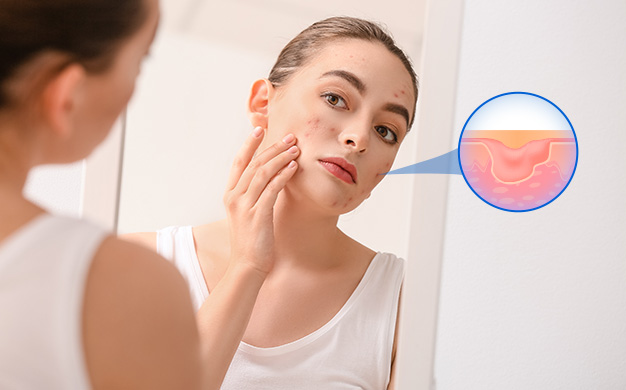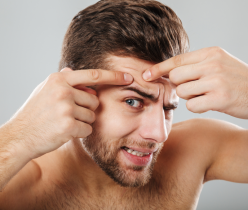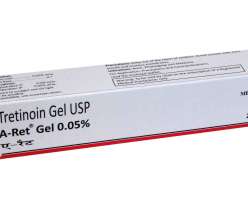Acne is a chronic skin issue that, depending on its course, is characterized by various skin eruptions such as open and closed comedones, papules, pustules, and cysts. During the disease, patients with acne experience itching and burning of the skin. Acne scars often develop in people struggling with severe forms of acne, reducing their quality of life. Patients often feel ashamed, anxious, embarrassed, and socially isolated, which can bring depression and even suicidal thoughts. A scar is a skin lesion that results from the healing of wounds due to chemical, mechanical, or thermal injuries. Scars can appear after skin inflammation, for example, as a complication of acne.
Fortunately, acne scars can be treated. But before acne scars treatment begins, you first must get rid of acne once and for all since new breakouts can lead to acne scars. Some of the acne scar treatments below are done alongside acne medications, and the inflammation caused by acne can also reduce treatment effectiveness.
Scars develop when a breakout penetrates the skin deeply and cause damage to the tissues beneath it. Before treating scars, you must know what type of scar you have. Each type responds to treatment differently; some treatment options are better for particular types than others. Furthermore, your skin tone can also be a factor. For example, deeper skin laser treatments will not be used for people with dark skin as there is a great risk of scarring and pigmentation. Most dark skin tones will be penetrated with hydroquinone 4 per cent before treatments like peels micro-needling, and lasers.
Atrophic or depressed acne scars
Atrophic scars usually develop on the face. A depressed scar develops below the surrounding skin. They occur when not enough collagen is formed while the wound is healing. Three types of atrophic scars include:
-
- Boxcar– They appear wide, U-shaped scars with sharp edges. The shallower they are, the better they respond to treatments like skin resurfacing. Gentle peels and microdermabrasion work for almost all skin types.
- Rolling – These are usually wide and have rounded edges and a rolling appearance.
- Ice pick – These scars are narrow, V-shaped and can go deep into the skin. They appear as small round or oval holes, like a chickenpox scar. These are tough to treat as they extend far under the skin’s surface.
Hypertrophic or raises acne scars
These types of scars develop from the chest and back acne. They stand above the surface of the surrounding skin and are caused by too much collagen during healing and appear due to excessive collagen production during healing. Skin discolouration that is left behind after acne clears is not a scar. Re, brown or purple marks will disappear over a few months. Before you begin any treatment procedure for acne scars, it is important to consult a dermatologist. This will help you find the best treatment to reduce the appearance of scars and ensure that the spots on your skin are scars and not another health issue.
Current therapeutic approach to acne scars
-
-
- Alpha hydroxy acids (AHA)
-
AHA is found in skin care products used for acne-prone skin. They help in the removal of dead skin cells and the prevention of clogged pores. AHSs can help make acne scars appear less visible. Products containing AHAs are usually mild and exfoliate the outer layer of the skin to help reduce skin discolouration and rough appearance.
-
-
- Retinoids
-
Topical retinoids are another acne treatment that comes along with scar-soothing benefits. Retinoids like Tretinoin speed up skin cell regeneration and improve skin texture. Tretinoin is often considered the best cream for acne scars and dark spots.
Note- Retinoids can also make your skin sensitive to the sun; therefore, it is important to wear sunscreen daily while using anything that contains retinoids. You can find creams and gels with retinoids online, but a dermatologist’s recommendation is necessary. Look for the best acne scar removal products online.
-
-
- Salicylic acid
-
You may have already used salicylic acid to treat your acne. This skincare ingredient is in every acne solution, from spot treatments and lotions to face cleansers. When applied topically, salicylic acid helps reduce pores, swelling, redness and exfoliates. It is considered one of the best products for acne scars.
The bottom line
Though acne scars are frustrating, many acne scar treatments can make them less noticeable. Most scars are permanent, but a dermatologist can help you find the right acne scars treatment option to reduce the appearance of your scars.




